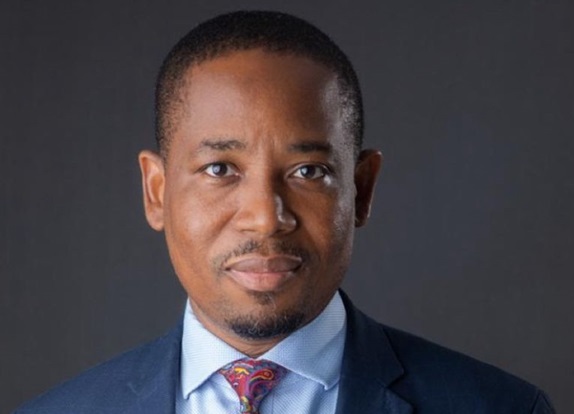
Public-Private Partnerships as critical development driver
Public-Private Partnerships (PPPs) are collaborative agreements between governments and private entities designed to finance, build and operate public projects.
These arrangements have gained global prominence due to their ability to bridge the gap between limited public resources and the growing demand for quality infrastructure and services.
PPPs offer an innovative approach to delivering sustainable solutions, particularly in developing economies like Ghana.
Although PPPs have emerged in recent years as a procurement tool to improve the standard and value for money of infrastructure and government services, their uses can be traced back to the Roman Empire, when private partners were contracted to build and maintain public infrastructure, including postal stations and highway systems.
Advertisement
Similarly, the British turnpike trusts of the 18th century allowed private investors to build and maintain roads, funded by toll collection.
These early examples underscore the enduring relevance of PPPs in addressing infrastructure needs.
In modern times, its use has been greatly expanded to include the procurement of all sorts of government infrastructure and services, such as water and sanitation, electricity, social services such as hospitals and schools, and roads and transportation infrastructure and services.
PPPs, sometimes referred to as Private Finance Initiatives (PFI), have many definitions, however, certain key ingredients must necessarily be in place for a project to be considered a PPP.
In Ghana, a PPP is a contractual agreement between a public entity and a private party to provide public services or infrastructure.
The private party assumes some or all the risk and responsibility for the project over a set period.
In exchange, the private party receives financial compensation.
There are various forms of PPPs, starting with a simple service contract between a government entity and a private firm to maintain and operate a public facility to more complicated forms such as Design-Build-Finance-Operate (DBFO) which involves a private entity being responsible for the entire life cycle of a project, including design, construction, financing, and operation till the project is transferred to the Public contracting entity at the end of the contract life.
It is always important to stress that PPPs are not outright privatization since throughout the contract period, the public sector retains a stake or control over the project or service.
PPPs although have their downsizes, they also come with lots of benefits including the use of private capital for public projects, deployment of private sector expertise, experience and efficiency to improve the quality of public projects, and the risk is shared with the party best suited to handle, enhanced innovation through the involvement of different parties, attainment of value for money as PPP projects are expected to be delivered on time and within budget among other benefits.
PPP arrangements in Ghana are regulated by the Public Private Partnership Act, 2020 (Act 1039) at the direction of the Ministry of Finance.
This PPP Act effectively replaced the National PPP Policy which was in place since 2011.
Although various projects have been considered under the PPP programme, it is an unfortunate observation that there is not any significant project on the ground to be considered as a PPP project in its truest form, perhaps, the current challenging economic environment provides the new government a perfect excuse to re-activate the Ghana PPP Program to drive its economic agenda.
The main purpose of this article is to tease out how PPPs can be deployed in the procurement of large public infrastructure projects, and small to medium local government projects as well as drive the digital economy to spur economic development and also accelerate the achievement of SDGs, especially at this critical economic times of the country, especially against the backdrop of lingering effects of the disruptions caused by COVID-19, Russia-Ukraine war and most recently the Domestic Debt Exchange Programme (DDEP) undertaken by the government in 2022 that led to Ghana signing onto the International Monetary Fund (IMF) programme for a financial bailout to help the country manage economic crises by restoring macroeconomic stability, debt sustainability, and inclusive growth.
This requires that the government be innovative in how it delivers critical public infrastructure that could spur economic growth to dig itself out of the current economic challenges.
This article is in no way indicating that PPPs are the silver bullet to solve Ghana’s economic challenges but merely pointing out that, it is a viable option among others that should be considered to help deliver critical infrastructure and services to help stabilize the economy and provide the platform to accelerate economic growth.
This can be done through three key areas including large infrastructure projects, local government projects, and innovation and entrepreneurship programs to drive the digital economy: setting the country up nicely for the 5th Industrial Revolution.
Large Infrastructure Projects
Various figures above several billion US Dollars have been quoted in various studies as what is needed to plug the country’s infrastructure gap despite the efforts of successive governments to close this gap, we are still saddled with a lack of critical infrastructure and where some exist, they are mostly aging, poorly maintained, with poor quality of infrastructure services and are unreliable, adding to our economic woes.
This is evidenced in every sector of the economy, from Energy, Road and Transportation, Communication, and other infrastructure projects critically required in the delivery of essential services that could spur economic development.
To be continued
The writer is the Manager, Beyond Banking and Partnerships, Stanbic Bank Ghana

